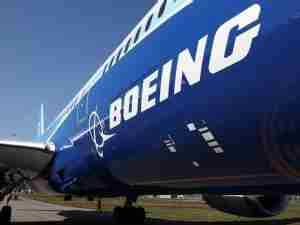Emirates Airliner Flying From India Lands in Flames in Dubai
By: | Aug 03 2016 at 07:16 AM | Air Cargo
Emirates suffered the worst incident in its 30-year history when a Boeing Co. 777-300 arriving from India crash landed in Dubai before bursting into flames, with all passengers and crew managing to escape unharmed.
Everyone on the aircraft was evacuated safely, Dubai International Airport said in an e-mailed statement. Television footage and newswire photos showed a large plume of smoke over the plane, with the landing gear torn off and evacuation slides extended. Emirates said via Twitter that 282 passengers and 18 crew members were on board.
The wrecked aircraft marks the worst accident for Dubai-based Emirates, the world’s biggest carrier by international traffic. Boeing’s 777 model is the largest twin-engine airliner in production and the most used wide-body. Emirates is the biggest operator of the plane as well as of Airbus Group SE’s A380 double-decker. The aircraft is also one of the safest, with only a handful of them having suffered irreparable damage since the model’s introduction two decades ago, including incidents caused by war or pilot error, according to Aviation Safety Network.
Emergency services were shown spraying the plane with water to put out a fire that ate its way through the length of the fuselage and removed the cabin roof. Dubai airport is delaying departures until further notice. Boeing “gathering more information” about the incident, a spokeswoman in New Delhi said by phone.
The aircraft involved entered service in March 2003, according to data from flight-tracking site Flightradar24. The plane had departed Thiruvananthapuram on India’s southwest coast at mid-morning on a flight that takes about 3 1/2 hours. Emirates serves the region to ferry Indian workers to jobs in the Middle East.
Emirates has built its business on exploiting the Persian Gulf’s position at the heart of intercontinental flight paths and the region’s oil industry, building Dubai into an airport that served 78 million passengers last year, making the hub the world’s biggest by international traffic. The carrier’s success has put pressure on earnings at European network airlines including Air France-KLM Group and Deutsche Lufthansa AG.

